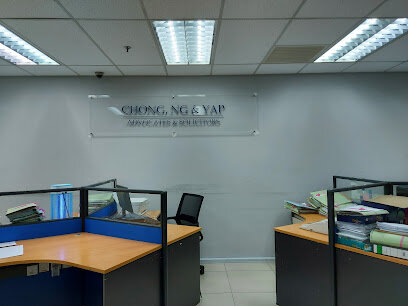Best Wrongful Termination Lawyers in Petaling Jaya
Share your needs with us, get contacted by law firms.
Free. Takes 2 min.
List of the best lawyers in Petaling Jaya, Malaysia
About Wrongful Termination Law in Petaling Jaya, Malaysia
Wrongful termination refers to the unfair dismissal of an employee by their employer, in violation of their legal rights. In Petaling Jaya, Malaysia, there are specific laws in place to protect employees from such wrongful acts.
Why You May Need a Lawyer
Seeking legal advice and representation in cases of wrongful termination is crucial. A lawyer can help you understand your rights, gather evidence, and navigate the legal process. Here are common situations where you may require legal assistance:
- If you believe you've been unlawfully terminated
- If you've faced discrimination or harassment leading to your termination
- If your termination occurred due to retaliation against whistleblowing
- If you were fired for exercising your legal rights, such as taking maternity/paternity leave or joining a union
- If you need guidance on negotiating a settlement or filing a claim
Local Laws Overview
In Petaling Jaya, Malaysia, several laws are relevant to cases of wrongful termination. These include:
The Employment Act 1955: This act covers various employment matters, including termination of employment, redundancy, and unfair dismissal. It applies to certain categories of employees based on their salary and nature of work.
The Industrial Relations Act 1967: This act provides a platform for resolving employment disputes through conciliation and, if necessary, through an Industrial Court. It covers the rights and procedures related to unfair dismissals and provides remedies for affected employees.
Other legislation, such as the Sabah Labour Ordinance (Chapter 67), the Sarawak Labour Ordinance (Chapter 76), and Collective Agreements, may also be applicable depending on the location and industry.
Frequently Asked Questions
1. Can I sue my employer for wrongful termination?
Yes, you can. If you believe you've been wrongfully terminated, you have the right to file a legal claim against your employer.
2. What remedies are available if I win my wrongful termination case?
If your claim is successful, the court may order remedies such as reinstatement to your job, compensation for losses suffered, and other appropriate relief based on the circumstances of your case.
3. What is the time limit for filing a wrongful termination claim?
The time limit, known as the statute of limitations, is generally 60 days from the date of dismissal for employees covered by the Employment Act 1955. However, it is advisable to consult a lawyer to understand the specific time limit that applies to your situation.
4. How can I prove that my termination was wrongful?
You will need to gather evidence such as documents, emails, witness testimonies, and any relevant records that support your claim. A lawyer can guide you on the specific evidence required to prove wrongful termination.
5. Can I settle a wrongful termination case out of court?
Yes, it is possible to reach a settlement with your employer outside of court. A lawyer can assist you in negotiation and ensure that your rights are protected throughout the settlement process.
Additional Resources
To find further legal advice and information on wrongful termination in Petaling Jaya, Malaysia, consider consulting the following resources:
- Malaysian Industrial Relations Department (Jabatan Perhubungan Perusahaan Malaysia): https://www.jppm.org.my/
- Malaysian Bar Council (Majlis Peguam Malaysia): https://www.malaysianbar.org.my/
Next Steps
If you require legal assistance regarding wrongful termination in Petaling Jaya, Malaysia, follow these steps:
- Gather any relevant documents and evidence related to your case
- Consult with an experienced employment lawyer
- Explain your situation, provide necessary information, and answer any questions
- Follow the lawyer's guidance on the best course of action, whether it involves negotiation or filing a legal claim
- Maintain open communication with your lawyer throughout the process
Lawzana helps you find the best lawyers and law firms in Petaling Jaya through a curated and pre-screened list of qualified legal professionals. Our platform offers rankings and detailed profiles of attorneys and law firms, allowing you to compare based on practice areas, including Wrongful Termination, experience, and client feedback.
Each profile includes a description of the firm's areas of practice, client reviews, team members and partners, year of establishment, spoken languages, office locations, contact information, social media presence, and any published articles or resources. Most firms on our platform speak English and are experienced in both local and international legal matters.
Get a quote from top-rated law firms in Petaling Jaya, Malaysia — quickly, securely, and without unnecessary hassle.
Disclaimer:
The information provided on this page is for general informational purposes only and does not constitute legal advice. While we strive to ensure the accuracy and relevance of the content, legal information may change over time, and interpretations of the law can vary. You should always consult with a qualified legal professional for advice specific to your situation.
We disclaim all liability for actions taken or not taken based on the content of this page. If you believe any information is incorrect or outdated, please contact us, and we will review and update it where appropriate.













